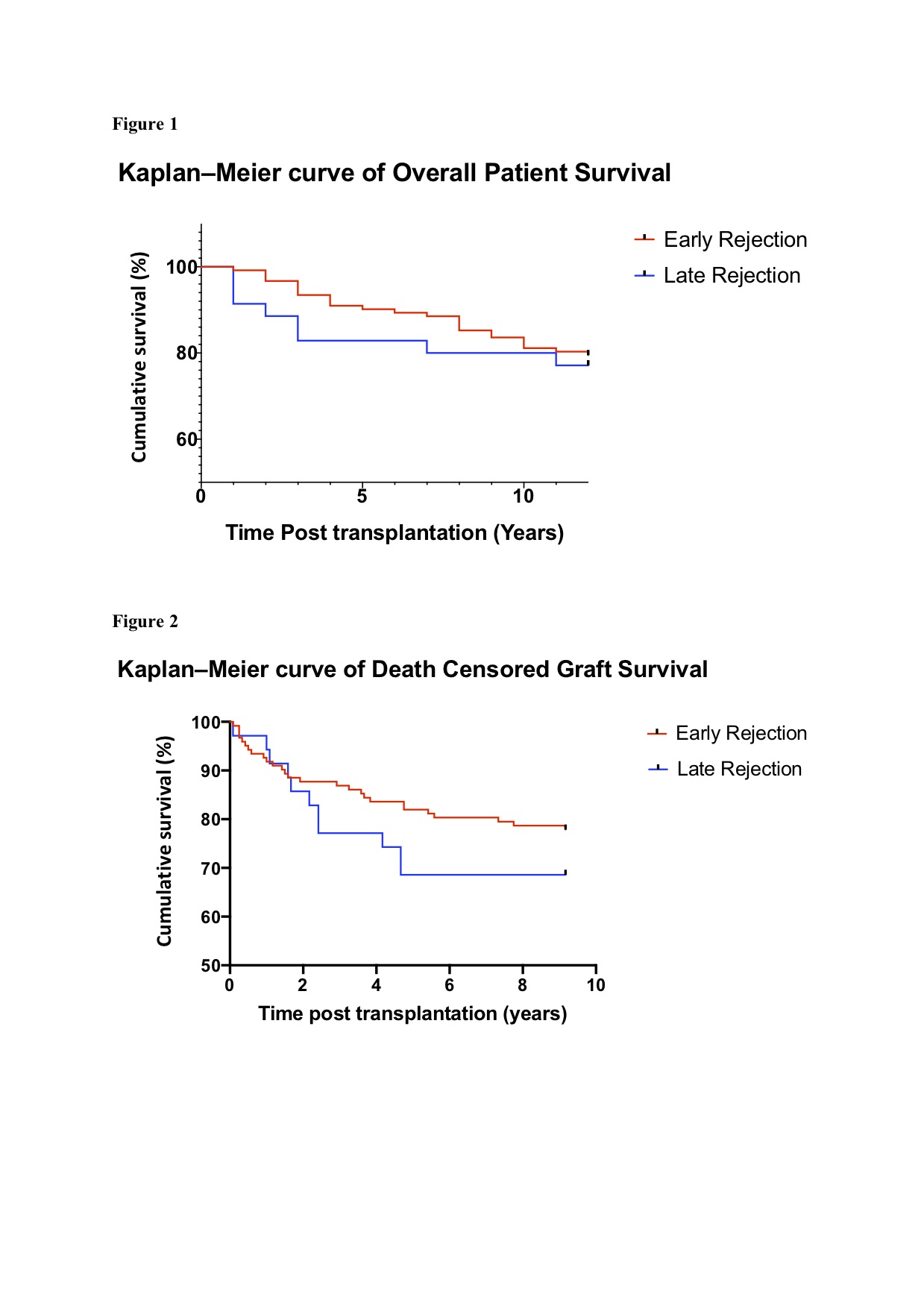Outcomes of Early versus Late Rejection in Kidney Transplant Recipients
Centre for Transplantation, Department of Renal Medicine, University College London & Royal Free London NHS Foundation Trust, London, United Kingdom
Meeting: 2020 American Transplant Congress
Abstract number: D-054
Keywords: Rejection
Session Information
Session Name: Poster Session D: Kidney Complications: Immune Mediated Late Graft Failure
Session Type: Poster Session
Date: Saturday, May 30, 2020
Session Time: 3:15pm-4:00pm
 Presentation Time: 3:30pm-4:00pm
Presentation Time: 3:30pm-4:00pm
Location: Virtual
*Purpose: Advances in immunosuppression have resulted in significantly improved acute rejection rates and short-term renal graft survival. Several studies have suggested that late rejection (LR) has a poorer effect on long-term graft survival than early rejection (ER). The aim of this study was to investigate the relative impact of ER and LR on graft function.
*Methods: We performed a retrospective analysis of 1,327 patients who underwent kidney transplantation at our centre between 2006 and 2017 (excluding ABO incompatible transplants). ER and LR were defined as biopsy-proven rejection before and after 3 months respectively. We compared the following outcomes: overall patient survival, death censored graft survival (defined as return to dialysis or re-transplantation), and change in eGFR.
*Results: Of the 1,327 patients, 157 (11.8%) had biopsy proven rejection, with 122 (77.7%) sustaining ER and 35 (22.3%) with LR. There was no significant difference in unadjusted patient survival between the two groups (p=0.66; see figure 1); death-censored graft survival was lower after LR at 10 years (p=0.23; see figure 2). Recipients with ER sustained a lower fall in eGFR from baseline (mean change of -6.4ml/min/m2vs -16.2ml/min/m2at 1yr, p=0.002) after 1 year. At 3 years from time of diagnosis, recipients with LR had a 26.9% reduction in their baseline eGFR compared to 10.2% in the ER group (p=0.02).
*Conclusions: Rejection occurring beyond three months post transplantation is associated with a significantly greater decline in eGFR one year after an episode of rejection compared with early rejection. This difference is further emphasised at three years. Factors implicated in LR, such as non-compliance with immunosuppression, need further investigation. Given the worse outcomes following LR, a greater emphasis needs to be made on efforts to predict and prevent recipients at risk of late rejection in order to avoid subsequent graft failure.
To cite this abstract in AMA style:
Jaffer A, Chong S, Rai S, Harber M, Motallebzadeh R. Outcomes of Early versus Late Rejection in Kidney Transplant Recipients [abstract]. Am J Transplant. 2020; 20 (suppl 3). https://atcmeetingabstracts.com/abstract/outcomes-of-early-versus-late-rejection-in-kidney-transplant-recipients/. Accessed February 24, 2026.« Back to 2020 American Transplant Congress

